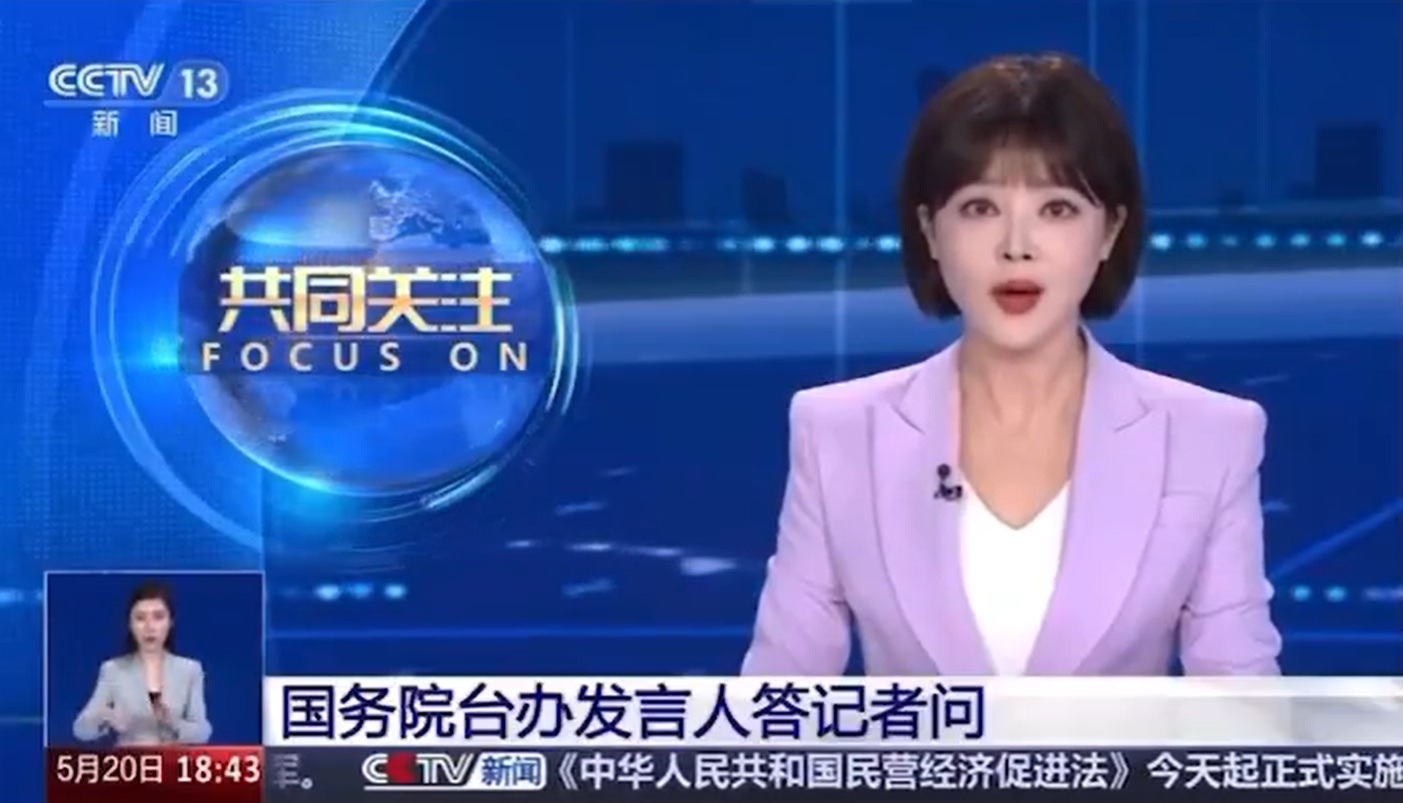
Chinese state media has censored a news broadcast after an anchor mistakenly referred to Taiwan and China as “two countries” in a contradiction of Beijing’s official position.
Newsweek reached out to the Chinese and Taiwanese foreign ministries with written requests for comment.
Why It Matters
The government of Taiwan, officially known as the Republic of China, retreated to the island in 1949 after losing a civil war to communist forces. It has since operated as a sovereign state, with its own constitution, military and foreign relations.
However, Beijing claims Taiwan as part of its territory and insists unification is inevitable—by force if necessary. China has increased the frequency of its punitive military drills around the island since the inauguration of its Beijing-skeptic President Lai Ching-te.
China Central Television
What To Know
Hu Die, an anchor on Chinese state broadcaster CCTV-13, made the on-air slip while reporting on a statement from the Taiwan Affairs Office (TAO)—a Chinese agency tasked with promoting Beijing’s messaging on Taiwan—criticizing remarks by President Lai the previous day.
“The direction and pace of cross-strait relations moving forward cannot be obstructed,” she said.
“Even more so, the two countries cannot be obstructed—cannot obstruct the historical trend that the motherland will eventually be unified,” Hu added, quickly correcting herself.
The clip was soon scrubbed from the CCTV website and social media.
May 20: 🇨🇳 CCTV-13 news anchor Hu Die (胡蝶) says “两国” (two nations) when she’s talking about China and Taiwan during a live newscast…
I guess this could be the end of her career at the state media group.
All relevant video clips have been removed from Chinese media / social… pic.twitter.com/GsHvHPgTjn
— Byron Wan (@Byron_Wan) May 21, 2025
Lai on Tuesday addressed the state of relations across the Taiwan Strait in a speech marking one year since he took office.
“Many countries around the world, including Taiwan, are in fact under the threat of aggressors,” he said in a barb aimed at China.
Lai renewed an offer made during last year’s postelection victory speech, saying Taipei is open to resuming official exchanges with Beijing if they are conducted on terms of “parity and dignity.”
TAO spokesperson Chen Binhua accused the Taiwanese leader of hypocrisy, saying his “separatist” stance—or insistence on engaging in a “two-state” framework—is incompatible with restarting talks.
“His two-faced tactics are doomed to fail,” Chen said, reiterating Beijing’s stance that the trend toward unification remains unchanged.
A poll released early this year showed 76 percent of Taiwanese support either maintaining the status quo or moving toward de jure independence, while only 13 percent favor unification with China.
China has threatened to declare war if Taiwan declares official independence. Lai maintains that Taiwan is already independent, so such a declaration is unnecessary.
What People Have Said
Joseph Wu, head of Taiwan’s National Security Council, wrote on X (formerly Twitter) Friday: “Taiwan is a democratic nation and will not allow China to turn it into another Hong Kong. We will invest in our defense and work with democratic partners to keep the Indo-Pacific free and open.”
Chinese President Xi Jinping said during his New Year’s Eve address: “We Chinese on both sides of the Taiwan Strait belong to one and the same family. No one can ever sever the bond of kinship between us, and no one can ever stop China’s reunification, a trend of the times.”
What’s Next
China is almost certain to continue squeezing Taiwan’s diplomatic space and conduct major military drills in waters near the island.
U.S. officials, including Secretary of State Marco Rubio, have said they believe Xi could move against Taiwan before the end of the decade and have said the best means of deterring an invasion is to dramatically raise the cost to Chinese forces.
